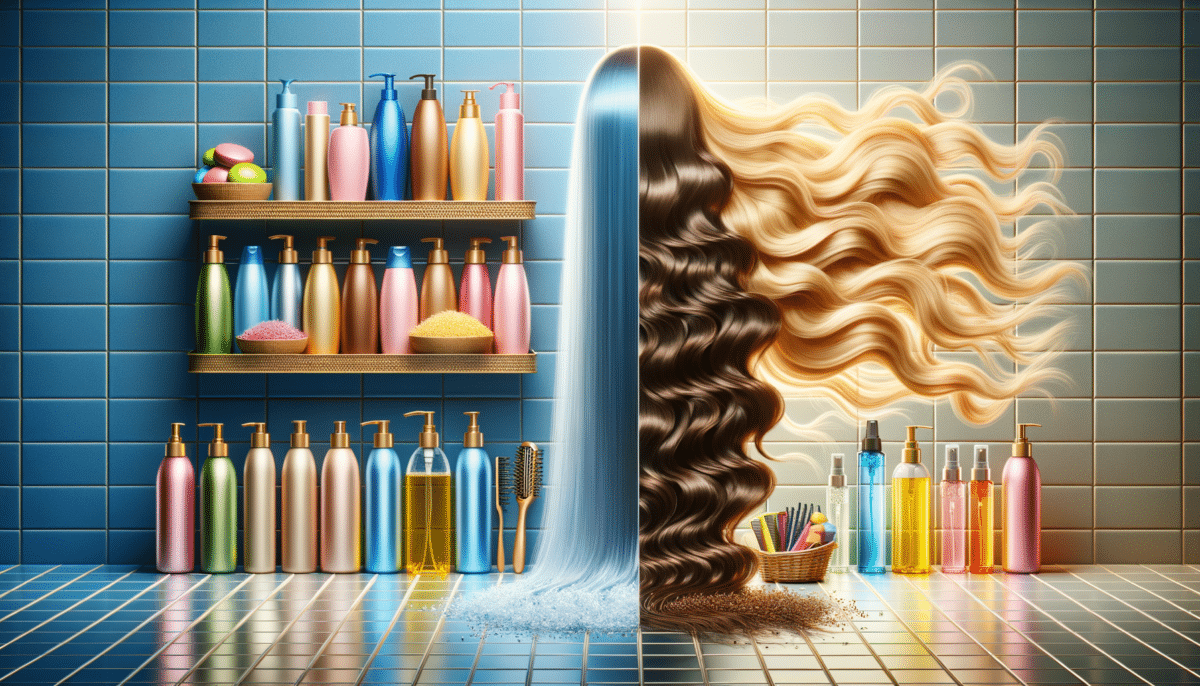The Importance of Scalp Health
When it comes to hair care, the scalp is often overlooked, yet it plays a crucial role in the overall health of your hair. A healthy scalp provides the foundation for strong hair growth, much like fertile soil is essential for a thriving garden. The scalp is home to hair follicles, the tiny structures responsible for producing hair strands. If the scalp is not well-cared for, it can lead to various issues such as dandruff, itchiness, and even hair loss.
One of the key factors in maintaining scalp health is ensuring proper hygiene. Regular washing helps remove excess oil, dirt, and product buildup that can clog hair follicles. However, it’s important to strike a balance, as over-washing can strip the scalp of its natural oils, leading to dryness and irritation. Using a gentle, sulfate-free shampoo can help maintain this balance.
Additionally, scalp massages can enhance blood circulation, promoting nutrient delivery to hair follicles. This not only supports hair growth but also provides a relaxing experience. Consider incorporating essential oils like tea tree or peppermint into your routine, as they have properties that can soothe the scalp and reduce inflammation.
Choosing the Right Hair Products
The market is flooded with countless hair care products, making it challenging to choose the right ones. The key is to select products that align with your hair type and specific needs. For instance, those with dry hair should look for moisturizing shampoos and conditioners that contain ingredients like argan oil or shea butter. On the other hand, individuals with oily hair may benefit from clarifying shampoos that effectively remove excess oil.
It’s also important to be mindful of the ingredients in your hair products. Avoid products with harsh chemicals such as sulfates, parabens, and silicones, as they can damage hair over time. Instead, opt for products with natural ingredients that nourish and protect hair.
Remember, less is often more when it comes to styling products. Overuse can lead to buildup, weighing down your hair and making it appear dull. Use products sparingly and focus on quality rather than quantity.
The Role of Diet in Hair Health
Nutrition plays a pivotal role in maintaining healthy hair. Just like any other part of the body, hair requires a variety of nutrients to grow and remain strong. A diet rich in vitamins and minerals can significantly impact hair health.
Proteins, for instance, are the building blocks of hair. Ensuring adequate protein intake can help prevent hair loss and promote growth. Foods like eggs, fish, and legumes are excellent sources of protein. Additionally, vitamins such as A, C, and E, along with minerals like zinc and iron, are vital for hair health. These nutrients can be found in a variety of foods, including leafy greens, nuts, and seeds.
Omega-3 fatty acids, found in fish like salmon and mackerel, are also beneficial for hair, as they help keep the scalp hydrated and improve hair elasticity. Staying hydrated by drinking plenty of water is equally important, as dehydration can lead to dry, brittle hair.
The Impact of Environmental Factors
Environmental factors can have a significant impact on hair health. Exposure to pollutants, UV rays, and harsh weather conditions can all contribute to hair damage. It’s important to take protective measures to shield your hair from these elements.
Wearing a hat or scarf can provide a physical barrier against the sun’s UV rays, which can cause hair to become dry and brittle. Additionally, using hair products that contain UV filters can offer added protection.
Pollution can lead to buildup on the scalp and hair, making it essential to cleanse regularly. Consider using a clarifying shampoo once a week to remove impurities and restore shine.
In colder climates, the dry air can strip moisture from your hair, leading to static and frizz. Using a humidifier indoors can help maintain moisture levels in the air, benefiting both your hair and skin.
Styling Tips for Healthy Hair
While styling can enhance your appearance, it’s important to do so in a way that doesn’t compromise hair health. Heat styling tools, such as straighteners and curling irons, can cause damage if not used correctly. Always use a heat protectant spray before applying heat to your hair to minimize damage.
Consider embracing natural hairstyles that require minimal heat and manipulation. Braids, buns, and twists are stylish options that can protect your hair from breakage.
When brushing, use a wide-tooth comb or a brush with soft bristles to avoid pulling and breaking hair strands. Start detangling from the ends and work your way up to the roots.
Finally, regular trims are essential to maintaining healthy hair. Trimming every six to eight weeks can prevent split ends and keep your hair looking fresh and vibrant.
Conclusion: Embrace a Holistic Approach to Hair Care
Maintaining healthy hair requires a holistic approach that encompasses proper scalp care, the right products, a balanced diet, protection from environmental factors, and mindful styling. By understanding and addressing these various aspects, you can achieve and maintain vibrant, healthy hair that not only looks good but feels good too. Remember, your hair is an extension of your overall health, so treat it with the care and respect it deserves.
